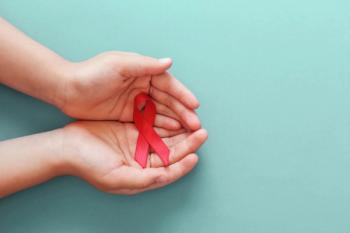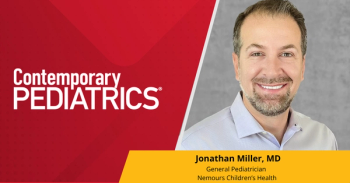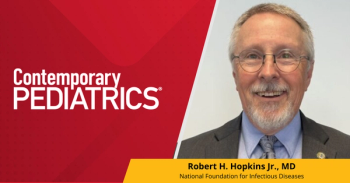
Lessons learned: “The children of the pandemic”
The COVID-19 pandemic has irrevocably altered the childhoods of children around the world. Dr. Andrew Schuman examines the lessons we can learn from this experience.
As a consequence of the COVID-19 pandemic - children have seen their schools shuttered, summer plans altered, competitive sports haltered, and movie theaters and other recreational venues closed. Many parents have lost jobs, and some families have had to deal with the deaths of grandparents or other older relatives from SARS- CoV-2 infection.
As families have been in lockdown, children have had limited access to health and dental care, reduced access to friends and families, and most have been required to participate in online learning, with varying degrees of acceptance and success. Children with disabilities have not received the necessary physical therapy, occupational medicine therapy, and speech therapy services they require. In addition, many of my patients in college have had to return home to complete courses online and several have changed their majors or academic plans for next year.
As pediatricians returning to our offices, from weeks of providing telehealth services, we have seen the physical and emotional impact of the pandemic on patients and families. Lots of children have gained significant weight while being idle at home, missed physical examinations and necessary vaccines, and many have developed anxiety or depression.
However, I have been encouraged and inspired by my conversations with parents and children. Every parent and every child it seems, has a unique pandemic experience to share. Many parents are performing their jobs remotely, while “essential” workers continue to travel to their workplaces, wearing masks and physically distancing to safeguard themselves and their families. Some day cares have remained open and have done so successfully. Virtually all families have shown an enormous amount of resilience and adaptability during the crisis. Many children have been intrigued by the novelty of virtual classrooms and have participated with at least some small measure of enthusiasm. Between lessons they play video games or watch television while their parents are working. As the weather improved, many kids ventured outside, to get some exercise in an effort to lose some of the weight they gained during the winter months of the pandemic. Some resourceful parents allied with others to “bubble quarantine” their families so kids could play together. Many grandmothers fashioned colorful assortments of masks based on favorite cartoon characters as surprise gifts for grandchildren. And…. some parents are now even reading books with their kids and families are playing board games together!
So, despite the hardships we have all endured, and will continue to endure for some time to come, there are lessons to be learned from our pandemic experiences.
First- it is great to be a pediatrician, even in turbulent times when parents and children need a reassuring voice to discuss the wisdom of returning to school come fall. We continue to improve the lives of patients and families, perhaps more significantly now than we did pre-pandemic.
Second- despite the background noise of political discussions, it is reassuring that most local and state governments have strived to do their best to support communities economically and medically during the pandemic. It is comforting that the federal government has provided financial relief to individuals and businesses in an effort to minimize the effect of the pandemic on our economy. The American Academy of Pediatrics has done an outstanding job in supporting its members with advice regarding how to care for our patients as well as our practices, along with virtually all pediatric journals.
Third - children and their parents are communicating as never before. Parents are being pressed to explain about “bad germs”, why we need to wash hands, and why some people choose not to wear masks.
Lastly- history will likely recall our current generation of patients as the “COVID Kids”, who survived a prolonged period of adversity. Many unfortunately will not emerge unscathed, requiring treatment for “Post Pandemic Stress Disorder”, manifested by varying degrees of depression or anxiety. I am hopeful that the majority of COVID Kids will have learned to be more appreciative of parents, teachers, and their families.
There are lessons to be learned not only from virtual classes, but from the experience of living through a global crisis. Like the children who grew up during the Great Depression and world wars, children now are seeing first-hand how people can cooperate, and care for one another. Pediatricians too, will be better post crisis, motivated to improve our flawed health care system - having played an important role in caring for “the children of the pandemic.”
Newsletter
Access practical, evidence-based guidance to support better care for our youngest patients. Join our email list for the latest clinical updates.








